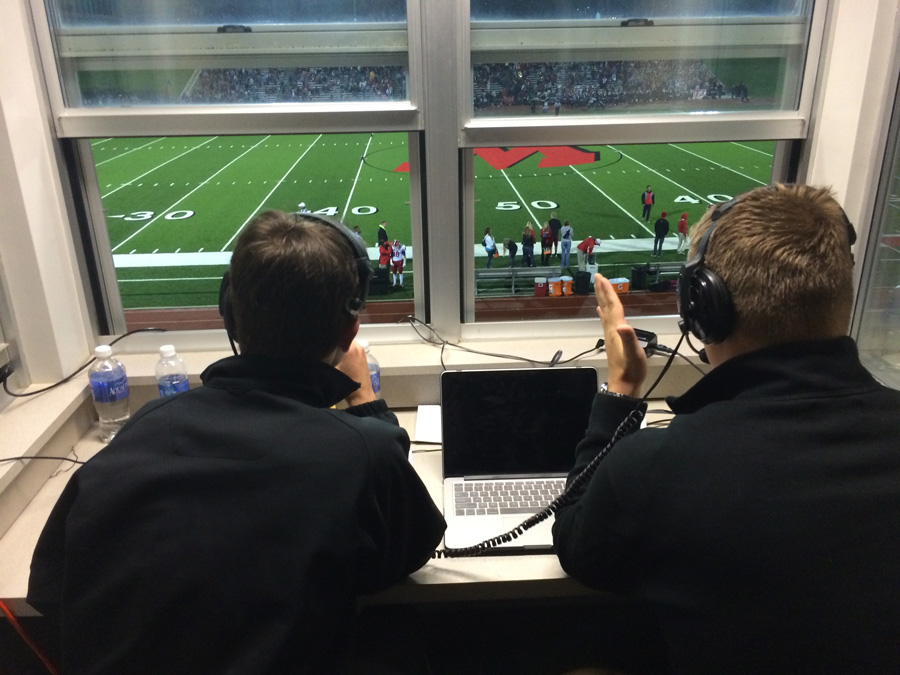He’s a diaper dandy! 5 tips to improve your sports announcing
 Your football team just made the playoffs, and you’ve been asked to Livestream the game. You’ve never even picked up a microphone before. Yikes! What do you do?
Your football team just made the playoffs, and you’ve been asked to Livestream the game. You’ve never even picked up a microphone before. Yikes! What do you do?
Not everyone can be the next Dick Vitale, John Madden, or Vin Scully. However, please take a listen at their style and creativity.
Student broadcasters are in a unique situation, being able to practice their announcing skills in a relatively low pressure, low stress environment. Here are five tips to help student announcers hone their craft:
- Do not talk excessively about nothing. It’s OK to led the game noise or crowd noise carry a student broadcaster during moments where there is nothing to say. You do NOT have to talk every second of the entire game. Listeners tuning into a broadcast want to feel like they are at the game, and a raucous crowd celebration after a touchdown is more interesting to them than you announcing everyone that did something during the score. Come to the game with live PA reads ready to go just in case there is downtime – because dead air is awkward and uncomfortable – but it’s best if you don’t have to use them.
- Have energy! Don’t be monotonous, but don’t be afraid to energize your listener base. If someone does something exciting – even if it’s not your team – feel free to announce with energy. Some would say not to sound excited if the opposing team makes a great play, but recognizing it as a great play when making the call is OK. Make sure to also give the opposing team some love when announcing lineups or great plays. Never disrespect an opponent.
- Keep opinions away from the microphone. No one tunes into your broadcast to hear how you personally feel about the other team, coaches, fans, etc. Your role as a sports announcer is to inform fans who cannot be at the game. There are some fans that listen to the audio broadcasts of games while being actually in attendance. Therefore, you need to focus your attention on giving stats, details, and game experience to your listeners.
- Do your research! Nothing makes a listener turn off your broadcast faster than when you pronounce a name wrong, call the stadium the wrong name, or saying you’re playing a team you’re not. Credibility is one of the most important things a broadcaster can have, and you need to cultivate it. Make sure the names and numbers on your rosters are correct. Know how to pronounce names and schools. Research how teams have done leading up to this game – consecutive wins, win/loss streaks, individual stats, etc. Anything you can give your listeners during the game is important to research.
- Describe the action on the field/court. One phrase I’ve always heard on the radio is “The Carolina Panthers have the ball, and are driving left to right on your radio dial.” Now, smartphones don’t have dials, but the phrase is still important to say. Describe the stands, the field, the playing atmosphere. Paint images and pictures for your listeners. Make your listeners feel as if they’re in the stands with nachos, a soda, and a rally towel. Your descriptions (or lack thereof) can make or break your broadcast.
Every broadcast will be different. You will have good calls, bad calls, and those amazing calls where your player hits the buzzer beater to win a state championship. But the behind the scenes basics should never change. Research your opponent, keep your energy consistent, and describe every detail of what you see and hear…and maybe, just maybe, you could…go…all…the…way!
Good luck!





